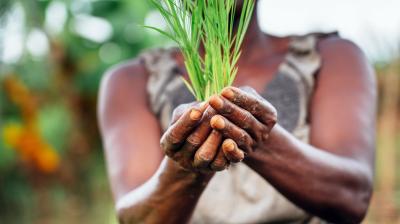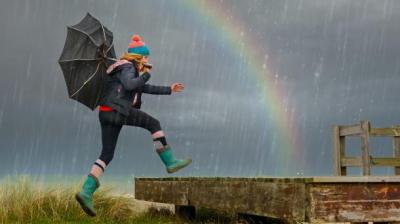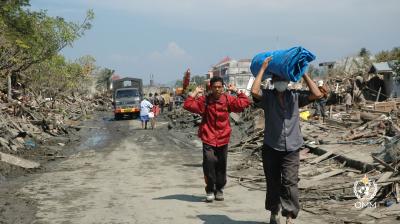
Socioeconomic impacts and benefits
Weather, climate, and water-related disasters negatively impact societies and economies. With the ability to predict and prepare for changes in weather and climate, societies can improve resilience and boost economic prosperity.
Overview
Extreme meteorological, hydrological, and climatological events such as heat and cold waves, tropical cyclones, floods, droughts, and other hazards can impose a heavy human toll and enormous cost on economies. An estimated 3.3 to 3.6 billion people live in places which are highly vulnerable to climate change, and global temperatures are continuing to rise. Meteorological, climatological, hydrological, and related information and services can deliver vast benefits to society. They enable individuals, businesses, and governments to reduce devastating impacts of extreme events and to strengthen national economies. They can contribute to poverty alleviation, increase business profitability, and enhance convenience of daily life. National Meteorological and Hydrological Services (NMHSs) are at the centre as they provide inputs on time periods ranging from hours to centuries to national, regional, and local administrations, weather- and climate-sensitive economic sectors, and the public.
Impact
Between 1970 and 2021, weather, climate, and water extremes caused over 2 million deaths and US$ 4.3 trillion in economic losses. Developing countries persistently bear the biggest share of human losses, accounting for over 90% of globally reported deaths. These countries are also disproportionately affected if economic losses are measured in relation to the size of their economies. Adverse impacts from weather, climate, and water extremes require scaling up actions to reduce exposure and vulnerability in regions, countries, and communities at the highest and increasing risk.
Despite a foundational role for resilient development, challenges faced by NMHSs, especially in developing countries, often include limited public financing, deteriorating infrastructure, capacity constraints, and the absence of effective operating models. Existing funding is not sufficient to allow NMHSs, particularly in Least Developed Countries (LDCs) and Small Island Developing States (SIDS), to invest in upgrading observational infrastructure, operational systems, information technology, and communications services.
The call for better weather, climate, and water services, including early warning systems, and the need for financial resources to close critical gaps in developing countries is recognized in several international frameworks. In the face of growing exposure to weather, climate, and water extremes, more investments in under funded hydrometeorological infrastructure and services are urgently needed. National governments, international development, and financial institutions need to step up and support NMHSs by substantially increasing investment levels over the next decades.
WMO's response
WMO’s work on the ground is steered by its vision of a world where all nations, particularly the most vulnerable, are more resilient to the socioeconomic consequences of extreme weather, climate, water, and other environmental events by 2030. Many governments, particularly in developing countries, underestimate the role that improved weather, climate, and water services can bring to their societies which can result in insufficient investments and budget allocations for NMHSs. The evidence points to a major lack of knowledge and capacity to perform socioeconomic benefit assessments on weather, climate, and water services in LDCs and SIDS. The newly established WMO Office of Economic and Societal Impacts (OESI) is pursuing a strategic shift towards a more systematic and robust socioeconomic assessment of weather, climate, and water services to help motivate and justify public and private investments and increase resilience.
More information: Valuing weather, climate, and water services




